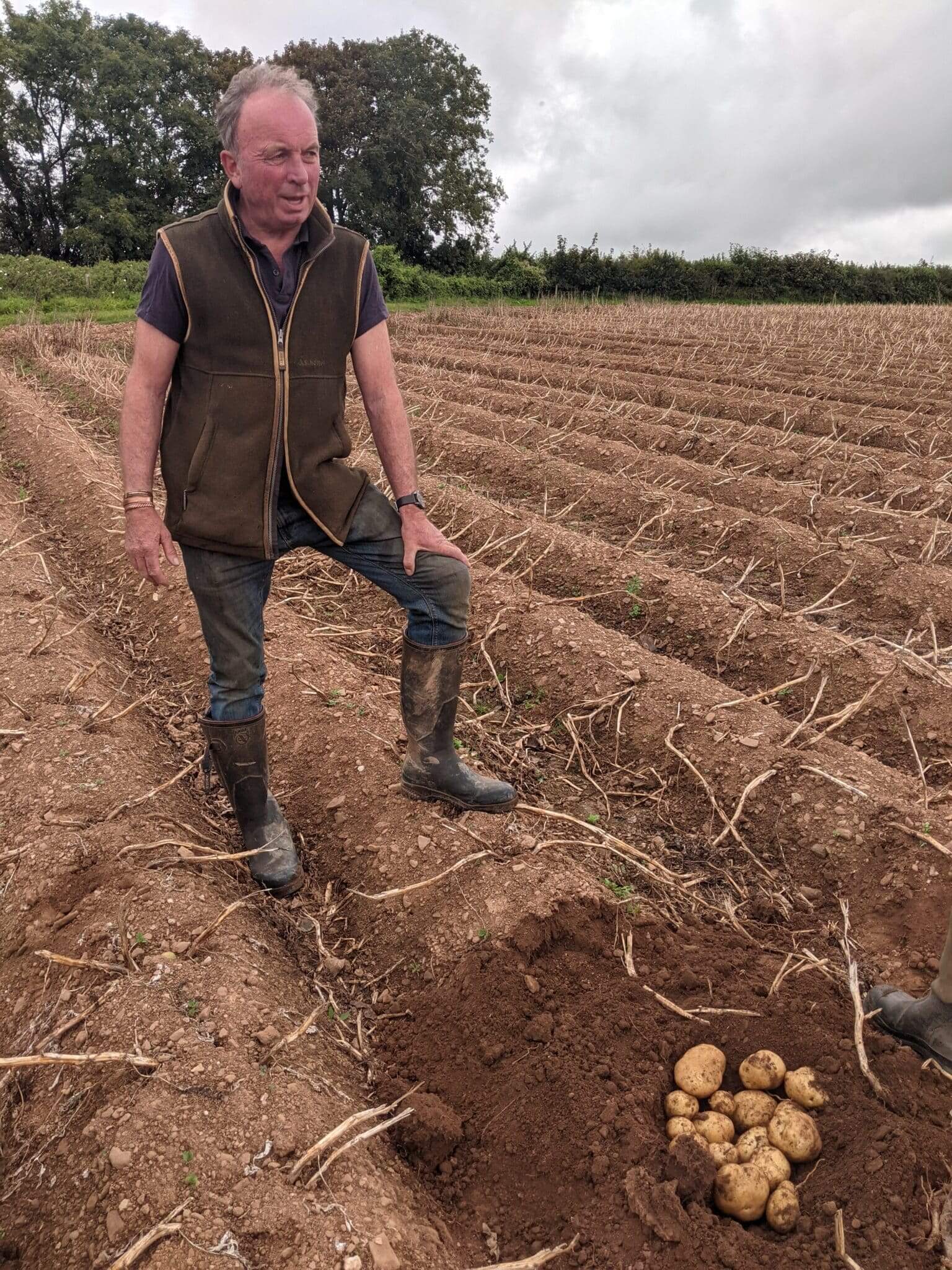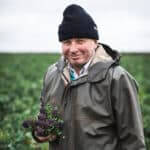Potatoes might seem like a steady staple, but they’ve had a very unusual year. Spring and summer had the worst growing weather we’ve seen for a while – it was extraordinary how difficult it was. February was so dry, and then in March it rained pretty much every day. We couldn’t actually plant the spuds until mid-May, and the growing season has been massively shortened as a result.
We use the ‘jeans test’ to see if potatoes are ready to harvest. It’s just what it sounds like: lift one out of the soil and rub it against your jeans. If the skin slips, they’re not ready and need to be reburied for a couple more weeks. Once the skin stays in position, we know the shelf life is where it needs to be. For new potatoes, you want loose skin, but for salad and baking potatoes, it needs to be set firm.
The field where we’re growing our Marfona potatoes this year is actually one of the first I ever converted to organic. For me, organic happened after a meeting with Guy Singh-Watson (founder of the organic veg box company, Riverford). He held meetings with local farmers, persuading us to go organic – and in 1989, he founded the South Devon Organic Producers co-operative, to pool resources and knowledge.
At first, I was sceptical about going organic. I was looking for an interesting project for the farm, I’d always been environmentally focused, and I hardly ever used sprays, so it was a logical step. I was also keen on farming without lining the pockets of the agrichemical companies. But it was very nerve-wrecking; we had no way of knowing whether we could make it work. I was finally persuaded because of the fact that Riverford would buy everything I grew, rather than picking and choosing certain crops and variable volumes, like other retailers.
For the first two years, I didn’t tell anyone I was doing it! That was 30 years ago, when you were a bit ‘alternative’ if you went organic. But it went very well. For me, it was like getting back to the way I farmed when I first started in the early 1970s, before things got too intensive; when there were proper crop rotations, and people cared about the soil structure and didn’t just throw chemicals at it. It was good to return to our roots, so to speak. And we haven’t looked back since.
















I love this article. I grew up on a very small family farm and these positive messages resonate. Returning to our roots is what we probably need to think about doing in so many areas of our personal lives and in so many parts of our culture. We got used to things being too good to be true. They were actually quite hollow. This isn’t.